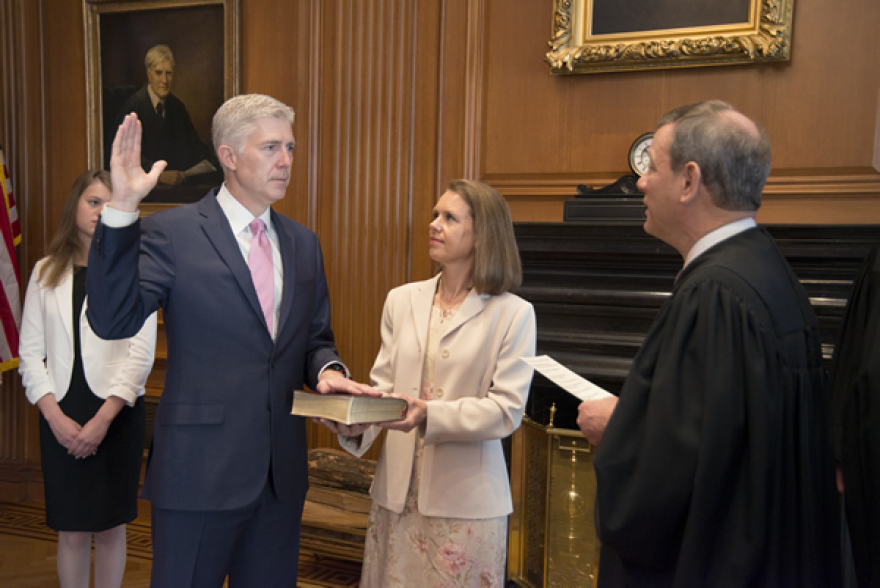The U.S. Supreme Court on Tuesday began hearing cases on employment protections for LGBTQ workers, and conservative Justice Neil M. Gorsuch, who hails from Colorado, is likely the deciding vote.
“How the court rules on these three cases will have huge ramifications for LGBT people across the country,” said Naomi Goldberg, of the , or MAP, a think tank focused on issues of equality.
Goldberg says any worker can file a discrimination complaint with the Equal Employment Opportunity Commission. “But they have to allege a basis of discrimination that’s currently prohibited under federal law,” she said.
Right now, that would be under Title VII of the Civil Rights Act, which prohibits discrimination on the basis of sex. The Supreme Court is weighing whether the law also applies to sexual orientation and gender identity.
Currently, Goldberg says, more than half of the complaints from LGBTQ workers come from states with no discrimination protections for them.
In the Mountain West, according to MAP, Colorado, Nevada and Utah already have explicit protections against discrimination for LGBTQ workers on the basis of sexual orientation. Idaho, Montana and Wyoming do not.
As the Los Angeles Times reports, Gorsuch called the LGBTQ workplace discrimination case “really close.”
This story was produced by the Mountain West News Bureau, a collaboration between Wyoming Public Media, Boise State Public Radio in Idaho, KUER in Salt Lake City, KUNR in Nevada and KRCC and KUNC in Colorado.
Copyright 2020 KUNR Public Radio. To see more, visit . 9(MDAxNDQ2NDAxMDEyNzU2NzM2ODA3ZGI1ZA001))






